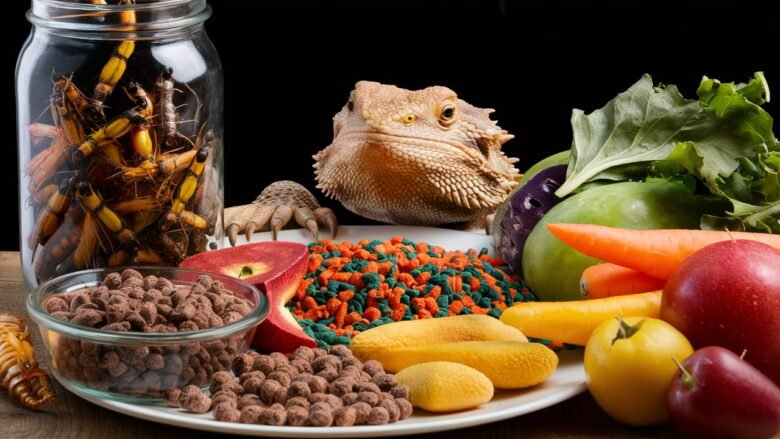A well-rounded diet is crucial for the health and longevity of reptiles. This article delves into the significance of dietary variety, the benefits of offering diverse food options, techniques for balancing nutrition, and the practice of supplementing meals to ensure optimal well-being in various reptile species.
Understanding Reptile Nutritional Needs
Providing a diverse selection of food options is essential for reptiles, as it maximizes nutrient absorption and prevents deficiencies. Variation promotes better digestion and supports overall health by mimicking their natural feeding behaviors, enhancing well-being and longevity.
Benefits of Offering Diverse Food Options
Offering a diverse range of food options significantly enhances reptiles’ diets by preventing nutritional deficiencies. Variability not only promotes better digestion but also boosts overall health and encourages natural foraging behaviors, crucial for behavioral enrichment.
Balancing Nutrition in Reptile Diets
Balancing a reptile’s diet requires understanding specific nutritional needs. Each species demands varying proportions of proteins, fats, and carbohydrates. Aim for a 1:1 calcium to phosphorus ratio, crucial for skeletal health.
Supplementing Reptile Meals for Optimal Health
Supplementing a reptile’s meals is essential for ensuring optimal health. Diverse dietary sources may not always contain sufficient vitamins and minerals, making supplementation crucial.
Common supplements include multivitamins, which provide a range of essential nutrients, and calcium powders, vital for proper bone health. It’s important to choose high-quality products specifically formulated for reptiles to avoid deficiencies.
When applying supplements, follow dosage guidelines based on your reptile’s size and species. Regularly dust daily feedings with calcium and additional vitamins two to three times weekly, focusing on growing juveniles or breeding females who have increased nutritional needs. Keep an eye on your reptile’s overall health, adjusting supplements if necessary to cater to changes in activity level or health status.
Practical Tips for Feeding Reptiles
To ensure a well-rounded diet, introduce new foods gradually, observing your reptile’s reactions. Adjust feeding strategies seasonally, offering hibernation-focused options, and monitor preferences to keep meals diverse and appealing. Regularly vary proteins, vegetables, and fruits to balance nutritional needs throughout different life stages. Additionally, consider using methods like scenting to entice reluctant eaters, ensuring they receive essential nutrients without stress or resistance.
Conclusions
Incorporating dietary variety, balanced nutrition, and meal supplementation is essential for maintaining the health of reptiles. By understanding and applying these principles, reptile owners can promote a longer, healthier life for their pets, ensuring they thrive in their environments.



